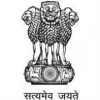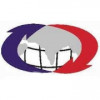Filter interviews by
Mahagenco Junior Mechanical Engineer Interview Questions and Answers
7 Interview questions
Tariff is a tax imposed on imported or exported goods. It is analyzed based on the type of goods and the country of origin/destination.
Tariff is a form of protectionism used by governments to protect domestic industries from foreign competition.
Tariffs can be specific (fixed amount per unit) or ad valorem (percentage of the value of the goods).
Tariffs can also be used as a tool for diplomacy, by imposing tariffs o...
Co-Generation plants are power plants that produce both electricity and useful heat simultaneously.
Co-Generation plants are also known as Combined Heat and Power (CHP) plants.
They use a single fuel source to generate both electricity and heat.
The heat produced during electricity generation is captured and used for heating buildings or industrial processes.
Co-Generation plants are more efficient than traditional po...
Thermal power plant generates electricity by converting heat energy into electrical energy.
Fuel is burned to produce heat
Heat is used to produce steam
Steam drives the turbine
Turbine drives the generator
Generator produces electricity
Examples: coal-fired power plant, gas-fired power plant, nuclear power plant
Boilers are classified into different types based on their design, fuel type, and usage.
Fire-tube boilers
Water-tube boilers
Electric boilers
Gas boilers
Oil boilers
Combination boilers
Condensing boilers
Solid fuel boilers
CHP stands for Combined Heat and Power, a system that generates electricity and heat simultaneously.
CHP is a highly efficient energy system that captures and utilizes waste heat produced during electricity generation.
It can be used in various settings such as hospitals, universities, and industrial facilities.
CHP reduces energy costs and carbon emissions by up to 30% compared to traditional energy systems.
Examples...
Conventional power plants use fossil fuels to generate electricity while non-conventional power plants use renewable sources.
Conventional power plants burn fossil fuels like coal, oil, and natural gas to generate electricity
Non-conventional power plants use renewable sources like solar, wind, hydro, and geothermal energy
Conventional power plants are cheaper to build and operate but contribute to pollution and clim...
Thermal power plants use fossil fuels to generate electricity. They have advantages and disadvantages.
Advantages: Reliable source of electricity, low operating cost, high efficiency, easy to operate and maintain
Disadvantages: High initial cost, environmental pollution, non-renewable source of energy, limited availability of fuel
Example: Advantages - Thermal power plants provide a reliable source of electricity tha...
Mahagenco Junior Mechanical Engineer Interview Experiences
1 interview found
I applied via Other and was interviewed before Oct 2020. There was 1 interview round.
Interview Questionnaire
7 Questions
- Q1. Describe Thermal power plant in brief
- Ans.
Thermal power plant generates electricity by converting heat energy into electrical energy.
Fuel is burned to produce heat
Heat is used to produce steam
Steam drives the turbine
Turbine drives the generator
Generator produces electricity
Examples: coal-fired power plant, gas-fired power plant, nuclear power plant
- Q2. Describe CHP
- Ans.
CHP stands for Combined Heat and Power, a system that generates electricity and heat simultaneously.
CHP is a highly efficient energy system that captures and utilizes waste heat produced during electricity generation.
It can be used in various settings such as hospitals, universities, and industrial facilities.
CHP reduces energy costs and carbon emissions by up to 30% compared to traditional energy systems.
Examples of C...
- Q3. What are the types of boilers
- Ans.
Boilers are classified into different types based on their design, fuel type, and usage.
Fire-tube boilers
Water-tube boilers
Electric boilers
Gas boilers
Oil boilers
Combination boilers
Condensing boilers
Solid fuel boilers
- Q4. Explain Conventional and non conventional power plants
- Ans.
Conventional power plants use fossil fuels to generate electricity while non-conventional power plants use renewable sources.
Conventional power plants burn fossil fuels like coal, oil, and natural gas to generate electricity
Non-conventional power plants use renewable sources like solar, wind, hydro, and geothermal energy
Conventional power plants are cheaper to build and operate but contribute to pollution and climate c...
- Q5. What do you mean by Co-Generation plants
- Ans.
Co-Generation plants are power plants that produce both electricity and useful heat simultaneously.
Co-Generation plants are also known as Combined Heat and Power (CHP) plants.
They use a single fuel source to generate both electricity and heat.
The heat produced during electricity generation is captured and used for heating buildings or industrial processes.
Co-Generation plants are more efficient than traditional power p...
- Q6. Advantages and disadvantages of Thermal power plant
- Ans.
Thermal power plants use fossil fuels to generate electricity. They have advantages and disadvantages.
Advantages: Reliable source of electricity, low operating cost, high efficiency, easy to operate and maintain
Disadvantages: High initial cost, environmental pollution, non-renewable source of energy, limited availability of fuel
Example: Advantages - Thermal power plants provide a reliable source of electricity that can...
- Q7. What is Tarrif and how its analysed
- Ans.
Tariff is a tax imposed on imported or exported goods. It is analyzed based on the type of goods and the country of origin/destination.
Tariff is a form of protectionism used by governments to protect domestic industries from foreign competition.
Tariffs can be specific (fixed amount per unit) or ad valorem (percentage of the value of the goods).
Tariffs can also be used as a tool for diplomacy, by imposing tariffs on cou...
Interview Preparation Tips
Top trending discussions






Interview questions from similar companies

Diploma Mechanical Engineer Interview Questions & Answers
Government of Indiaposted on 19 Jan 2022
I applied via Company Website and was interviewed in Dec 2021. There were 4 interview rounds.
Interview Questionnaire
25 Questions
- Q1. Job iruka
- Q2. Per month salary
- Q3. Permanent job haa
- Q4. Year of passing 2019
- Q5. Mechanical maintenance job iruka and 2year experience
- Q6. Interview eppo sir
- Q7. Just Chennai and Tamil Nadu lla job iruka
- Q8. Enna qualified Ella job iruku sir
- Q9. Part time job Ella per month job
- Q10. Government job and another job
- Q11. Fresh and experience job salary details sir
- Q12. One salary and month of salary or one year salary details
- Q13. Maintenance job and quality job iruka sir
- Q14. Travel allowance iruka sir
- Q15. Canteen allowance iruka sir
- Q16. Room allowance iruka sir
- Q17. Shift hours sir
- Q18. 8hours or 10hours sir
- Q19. Weekly five or six days sir
- Q20. Interview ennaga sir Chennai llaya sir
- Q21. One shift lla three shifts sir
- Q22. Sir shift timing solluga sir
- Q23. Super viewer job iruka sir
- Q24. I'm waiting for interview sir
- Q25. Railway job and EB job iruka sir
Interview Preparation Tips

Mechanical Engineer Interview Questions & Answers
National Small Industries Corporationposted on 5 Jun 2020
Interview Questionnaire
2 Questions
- Q1. Why is not proper environment ,rules and regulations?
- Ans.
Proper environment, rules and regulations are necessary for safety, efficiency and productivity.
Proper environment ensures the safety of workers and equipment.
Rules and regulations ensure compliance with legal and ethical standards.
Proper environment, rules and regulations promote efficiency and productivity.
Lack of proper environment, rules and regulations can lead to accidents, injuries, and loss of productivity.
Exam...
- Q2. Why is not proper machine maintenance ?
- Ans.
Improper machine maintenance can lead to breakdowns, reduced efficiency, and safety hazards.
Lack of lubrication can cause friction and wear on moving parts
Dirty filters can reduce airflow and cause overheating
Loose bolts and screws can lead to misalignment and vibration
Neglecting electrical components can cause shorts and fires
Ignoring warning signs can result in costly repairs or accidents
Regular maintenance can preve...
Interview Preparation Tips

Junior Engineer Interview Questions & Answers
Broadcast Engineering Consultants Indiaposted on 16 Jul 2022
I appeared for an interview in Jun 2022.

Group Discussion topic in various part leadership etc.
My topic is Workplace- An inclusive Workplace is where everyone irrespective of gender, race religion, or position in the company, feels valued and respected. No discrimination exists in an inclusive Workplace. Etc..
Interview Preparation Tips
Then study in perfect subjects. To Crack exam or interview


(6 Questions)
- Q1. What is my job
- Q2. What is this company name
- Ans.
I'm sorry, but I cannot answer that question without more information.
- Q3. What is this job
- Q4. What is your name
- Q5. What is your age
- Ans.
I prefer not to disclose my age as it is not relevant to my qualifications and experience for this position.
Age should not be a factor in determining one's ability to perform a job
Experience, skills, and qualifications are more important than age
Employers are not allowed to discriminate based on age
I am confident that my qualifications and experience make me a strong candidate for this position
- Q6. What is your work
- Ans.
I oversee daily operations, manage staff, and ensure customer satisfaction.
Manage and supervise staff
Ensure customer satisfaction
Create and implement policies and procedures
Monitor inventory and sales
Handle customer complaints and resolve issues
Train new employees
Collaborate with upper management

I applied via Naukri.com and was interviewed in Feb 2024. There was 1 interview round.
Basics Maths and basics reasoning
Interview Preparation Tips

I applied via Referral and was interviewed before Aug 2021. There were 2 interview rounds.

(2 Questions)
- Q1. Why do you want to the Internship in the UN?
- Q2. Walk us through your CV.
Interview Preparation Tips


(3 Questions)
- Q1. What is your next goal in your career?
- Ans.
My next career goal is to gain hands-on experience in my field, develop my skills, and contribute meaningfully to my team.
I aim to secure a full-time position after my internship, where I can apply my knowledge and skills.
I plan to pursue certifications relevant to my field, such as a project management certification to enhance my capabilities.
I want to take on leadership roles in projects to develop my teamwork and co...
- Q2. Why do you want to join the UNCCD?
- Ans.
I want to join the UNCCD to contribute to global efforts in combating desertification and promoting sustainable land management.
Passion for environmental sustainability: I believe in protecting ecosystems and biodiversity.
Desire to work on global issues: The UNCCD addresses critical challenges like land degradation and climate change.
Interest in policy-making: I want to be involved in developing strategies that promote...
- Q3. What do you think your tasks are?
Interview Preparation Tips

Intern Interview Questions & Answers
National Small Industries Corporationposted on 20 Nov 2024
Topics like ratios,number systems

Intern Interview Questions & Answers
National Small Industries Corporationposted on 29 Jan 2022

(1 Question)
- Q1. Where are you from and college name
Interview Preparation Tips
Mahagenco Interview FAQs
Tell us how to improve this page.
Interview Questions for Popular Designations
- Senior Engineer Interview Questions
- Quality Engineer Interview Questions
- Production Engineer Interview Questions
- Project Engineer Interview Questions
- Junior Engineer Interview Questions
- Service Engineer Interview Questions
- Mechanical Engineer Interview Questions
- Maintenance Engineer Interview Questions
- Show more
Interview Questions from Similar Companies
|
Assistant Engineer
7
salaries
| ₹8 L/yr - ₹14 L/yr |
|
Junior Engineer
5
salaries
| ₹4 L/yr - ₹4 L/yr |
|
Executive Engineer
4
salaries
| ₹14.5 L/yr - ₹20 L/yr |
|
Technician
4
salaries
| ₹1 L/yr - ₹6 L/yr |
|
Accountant
3
salaries
| ₹1.8 L/yr - ₹1.8 L/yr |

Government of India

Central Reserve Police Force

Ministry of Defence

India Post
- Home >
- Interviews >
- Mahagenco Interview Questions











